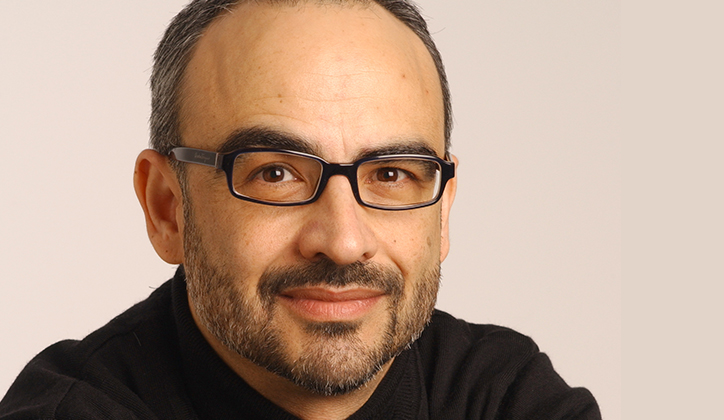In the lead up to the 2014 Macquarie University Research Excellence Awards, This Week is profiling nominees each week before winners are announced at an Awards Dinner on Thursday 2 October.
This week meet Professor Joseph Pugliese from the Department of Media, Music, Communication and Cultural Studies who is a nominee for an Excellence in Research – Social Sciences and Humanities Award for his work: State Violence and the Execution of Law: Biopolitical Caesurae of Torture, Black Sites, Drones.
How long have you been a researcher at Macquarie?
14 years.
I was drawn to research because…
I was drawn to research because of my passion for critical thinking and analysis and the potential that critical research has in enabling positive social transformation.
What would be an ‘elevator pitch’ of your research area?
My research area is fundamentally oriented by social justice concerns. How can we name, identify and then change social practices that produce harm, disenfranchisement and disadvantage? Oriented by social justice values, I critically examine a broad range of social practices in the specific contexts of law, education, government, Indigenous policies, asylum seeker and refugee policies, and technology.
In layman’s terms, what is the wider impact of your research?
The impact is that it challenges powerful institutions, such as the law, to take into account and to change practices that create harm or disadvantage in relation to particular groups or communities. My book, State Violence and the Execution of Law, worked to expose the manner in which US law, via the Office of Legal Counsel, was perverted, post-9/11, in order to legitimate practices of torture.
If I were given $1M in research funding, the first thing I would do is…
The first thing I would do is establish a trust to fund the extraordinary work of the Indigenous Social Justice Association (ISJA). ISJA receives no funding from any level of government for the important work it does for Aboriginal and asylum seeker communities. The trust would enable ISJA to pay for court costs, transport and accommodation and so on for the Indigenous families it supports and represents in the context of deaths in custody, coronial inquiries and in the prisons.
Who is/was your biggest research mentor?
Uncle Ray Jackson, President of the Indigenous Social Justice Association. Working with him over many years on diverse projects, Uncle Ray Jackson has taught me to be unwavering in my commitment to social justice; to hold on to hope for positive social change in the face of often seemingly intractable odds; and to be generous and expansive in my embrace of diverse communities.
My favourite and/or most proud research moment was when…
This was when I nominated Uncle Ray Jackson and the Indigenous Social Justice Association for the French Human Rights Award in 2013 and was contacted by the French consul with the news that ISJA had won the award. Don Watson, co-founder with Uncle Ray, of ISJA, was flown to Paris and presented the award at the Élysée Palace. Uncle Ray Jackson was presented with the French Human Rights Medal and with €20,000 prize money to fund two Aboriginal deaths in custody projects.

